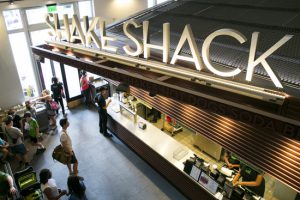State reports surge in COVID-19 cases, rise in testing
The Indiana State Department of Health said Wednesday that the cumulative death toll in the state rose to 1,264, up from 1,213 the previous day—an increase of 51.

The Indiana State Department of Health said Wednesday that the cumulative death toll in the state rose to 1,264, up from 1,213 the previous day—an increase of 51.
A plan issued last week by the state would allow Marion County to “reopen” on May 11, but Indianapolis Mayor Joe Hogsett said maintaining his stay-at-home order through May 15 will be safer.
Indiana residents should be wary about claims some companies are making about their ability to combat the spread of the coronavirus with disinfectants or cleaning services, state officials said.
The intraparty rift on a payroll tax cut comes as the Democratic-led House scrambles to produce additional coronavirus legislation with perhaps another massive price tag.
Experts around the country are now revising their forecasts about the spread of the virus, and several models in the past three days suggest that resuming normal activity would spur a significant increase in the number of cases and deaths.
As of Monday, U.S. beef and pork processing capacity was down 40% from last year, according to Jayson Lusk, head of the department of agricultural economics at Purdue University.
Gov. Eric Holcomb announced the creation of the marketplace on Friday, as he outlined his five-stage approach for reopening the economy, which included requiring stores, restaurants, offices and other companies to develop safety plans for employees and customers.
In April, all major categories fell sharply, with the business activity index dropping to 26, the lowest reading on record.
Take the New York metropolitan area’s progress against the coronavirus out of the equation and the numbers show the rest of the United States is moving in the wrong direction.
Some states with relatively few cases have been able to reopen their economies at a quicker pace and have more options on how to spend the federal largess. Many of them are now trying to determine how they can spend the windfall while keeping within the federal guidelines.
Goodwill of Central & Southern Indiana, which has begun reopening many of its 76 retail locations where possible, is cutting costs by eliminating its three Vintage Vogue stores.

Reeling from a slowdown in sales due to the coronavirus crisis, the New York City-based burger chain says it has paused all design and construction of new eateries. The Fishers location was set to open late this year.
The Indiana State Department of Health on Tuesday reported an increase of 2,537 tests. That’s the lowest number of new tests in the daily report since April 26.
The Mira Awards—Indiana’s largest and longest-running technology awards program—is going virtual. The change will cost TechPoint $80,000 in ticket revenue, but most sponsors are sticking with the event.
Major U.S. automakers are planning to reopen North American factories within two weeks, potentially putting thousands of workers back on the assembly line as part of a gradual return to normality.
Decisions on which technologies to use—and how far those allow authorities to peer into private lives—are highlighting some uncomfortable trade-offs between protecting privacy and public health.
Charlotte Westerhaus-Renfrow—an assistant professor of law and management at the IU Kelley School of Business—details negotiating techniques like “slicing the salami” and “taking it to the balcony” and explains the most important thing you need to know as you get started.
Three months ago, before the coronavirus outbreak caused widespread shutdowns in the United States, the U.S. Treasury was projecting that it would be able to pay down $56 billion in debt during the quarter.

The Indianapolis-based manufacturer took a blow in the first quarter due to the pandemic, but still turned in results that exceeded analyst expectations.
The high court had initially postponed arguments in 20 cases scheduled for March and April because of the coronavirus pandemic. But the justices ultimately decided to hear 10 cases by phone over six days this month.
